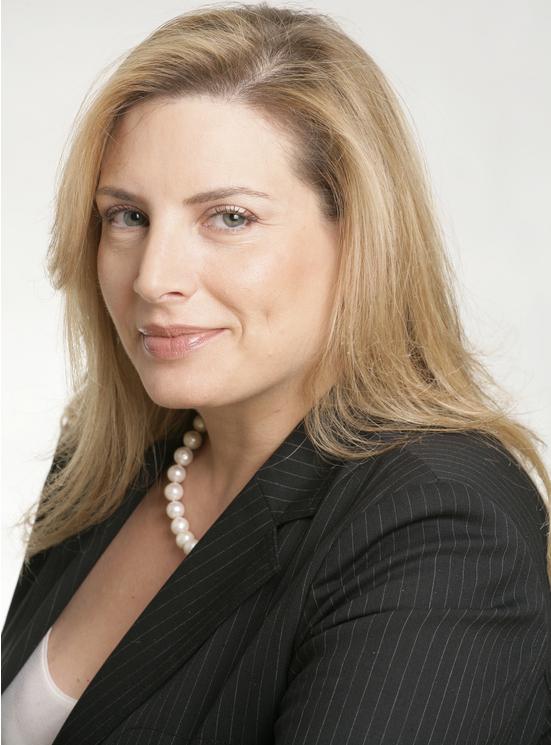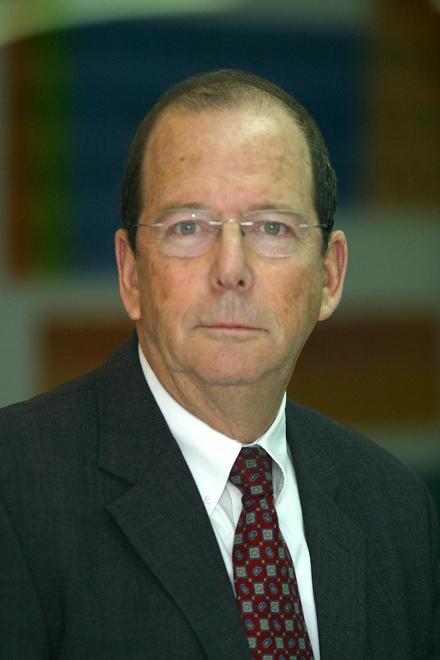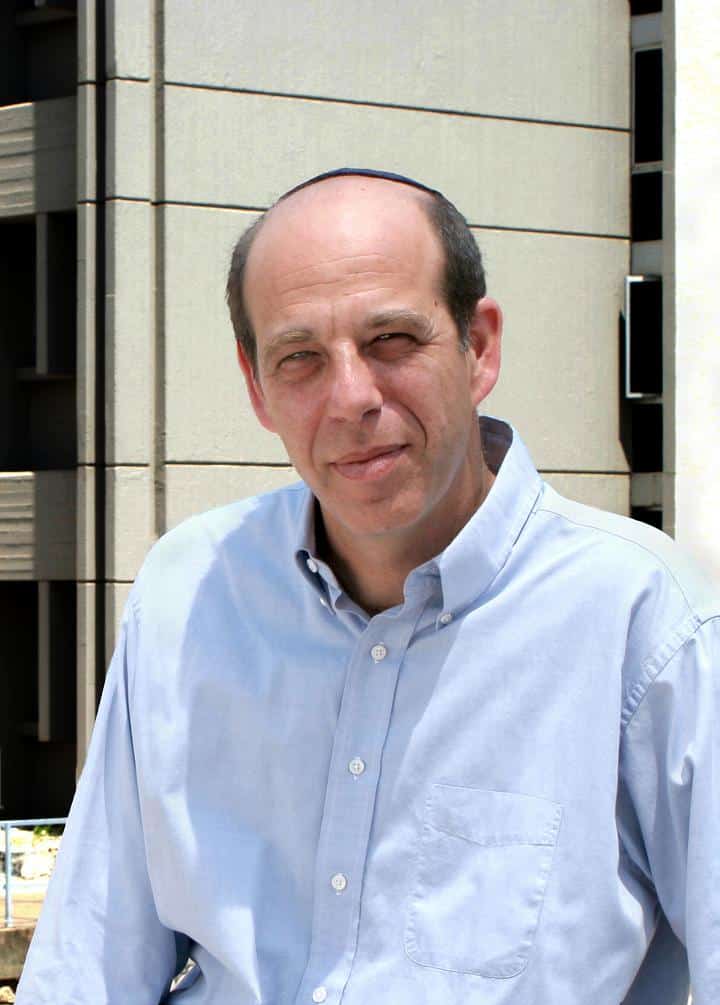The three co-chairs of the Nano-Israel conference: Nava Savarsky-Sofer, Dan Wilensky and Prof. Aryeh Tsavan talk about the next and necessary step after the establishment of the nano centers in the universities, the transformation of the knowledge accumulated in the centers into the industrial companies

If there is one field that can be said to be the fruit of joint parentage of industry and academia, it is the field of nanotechnology. This can be seen in the identity of the three co-chairs of the Nano-Israel conference, Nava Savarsky-Sofer, who was previously the CEO of an application company, Dan Wilensky, who was previously the CEO of Applied Materials and is currently the chairman of INNI - the Israeli Association for Nanotechnology, and Prof. Aryeh Tsvan , Director of the Nanotechnology Center at Bar-Ilan University. All three run the conference voluntarily out of a desire to create a platform to promote the next wave of information-based success."
The Nano-Israel conference is marking its second time in a completely different environment than the one in which the first conference took place in March 2009. Svarsky explains: "Being the CEO of the application, I was looking for sources to increase the number of commercialized projects and to find a few more fields. The nano centers were relatively young but I felt there was potential. In 2007, I sat on the steering committee of the Biomed conference, which provides a platform for today's key branch of the Israeli economy. We thought it would be worthwhile to create such a platform for the field of nanooncology, which is facing its breakthrough, and which is unique in that the country decided to take an active part through INNI, in order to create global leadership."
"The first conference took place in March 2009, as I recall, in January, Operation Cast Lead took place and we were in the midst of the economic crisis, but we found ourselves with over 900 people in Jerusalem, including 150 guests from dozens of countries, and maybe one or two speakers were absent. As for Nano-2010, we already know in the early stages that we will have representatives from about 25 countries, just in the field of scientific posters - 100 of the 300 exhibitors will be from abroad, over 3,000 scientific articles, hundreds of patents. This is a tremendous growth engine" concludes Seversky.

Dan Wilensky, member of the Board of Directors of the INNI Association: Nanotechnology is a revolution whose importance is difficult to even describe. When in 1947 three professors from Duplom at Bell Labs developed the first transistor - something the size of a television, the headline was that it was going to be a revolution, it would replace the tubes and be a huge industry. People told them 'you are out of your mind, it won't happen'. Today an industry worth 300 billion dollars."
"The same skeptics say the same thing about nanotechnology. You sell stories here, it's not going anywhere. Nanotechnology is the next wave after semiconductors reach an asymptote. I hope we don't have to wait 60 years but only 10 and say Wilensky was right."
Intermediate: do not compete with the Americans
Wilensky describes the joint process of industry, government and academia that resulted in the nanotechnology boom. "The nano field in Israel started about six years ago when Prof. Yaakov Ziv was the head of Talm, a resource pooling organization that understood that something had to be done so that the Israeli industry would align with the world. We missed the opportunities in the field of semiconductors and in the field of biotechnology. As a result, a committee was formed headed by the president of Applied Materials and my boss at the time, Dan Meaden. The members of the committee were scientists and industrialists. We came to the conclusion that it is impossible to compete with the Americans who already at that time spent about 2 billion dollars in nanotechnology. We decided to go for zip code. We created an innovative model according to which we arrived at the calculation that we need 300 million dollars for five years. The state invested 30 million dollars, and the rest came from other sources of the universities. This is where the head of the budget department, Kobi Haber, came to our aid. We explained to him that the university brings a marked contribution, the academy makes an adjustment from other 'non-hypocritical' sources and the government will add its third."
The result - six centers: at the Technion, Tel Aviv University, the Hebrew University, the Weizmann Institute, Bar-Ilan and Ben Gurion. According to Wilensky, the six centers operate over 350 research groups classified by subject and there is already development activity in 75 companies. Twenty of them are going to be at the conference and present their wares to gain strategic partners and prove that the decision was wise. 300 senior faculty members and 1,170 researchers. And "each center must also take in at least two new scientists a year who return from abroad," says Valinsky.
"The results of the effort is that academics who normally do not like to talk to each other willingly cooperate. The Israeli government has so far invested 83 million dollars in these centers, they receive a return thanks to the fact that we examine each project according to 12 criteria, which direct the most important and relevant projects for funding.
This is an example that when you do something with small budgets you can achieve achievements". Wilensky concludes.
Prof. Aryeh Tsavan from Bar-Ilan, manages one of these centers. "Dan spoke about manpower and this is an excellent start to the discussion: regularly 650 doctoral students are researching here at any one time, and every year a quarter of them change. So far, the centers have produced about 3,200 scientific publications, which is completely measurable. There is another interesting indicator: many publications are based on collaborations within the country. So far we have close to 400 collaborations between industry and academia. There are over 400 patent applications of which about 90 have already been approved, bearing in mind that the approval process takes at least 3 years. The activity in the centers has become an obstacle to growth, because the research funding mechanism is based on things that have an application in the real world, naturally, the research will have an applied meaning."
There are over 100 commercialization agreements or patents filed by established companies, 75 companies of which Dan indicated that about a third of them will present at the conference, and all this with an investment that is modest relative to the return. Tsavan points out that about 77 million dollars were invested in equipment and about 40 million in infrastructure and this does not include the construction of the buildings of the centers. "The center in Bar Ilan was established with money that was outside the plan (the building), donors also like buildings full of activity and not just dreams."

Seversky: "The numbers mentioned by Dan and Arie are impressive because they represent strategic thinking and a real plan that is actually being implemented to create leadership and to maintain it. Thanks to them, we have no problem bringing to the conference the leading people from the world - at the government level in different countries, large companies like Siemens or Bayer who come here to look for technologies and know that they can find the innovation that Israel is famous for in the field that we have something to offer with academic institutions that are open to industrial collaborations."
"This year we have added a session at the conference where 12 projects will be presented, two from each center, that are on the verge of commercialization, in these two days which are very busy, starting with academic sessions, research in the six fields that the conference focuses on and of course the posters, through projects on the verge of commercialization, younger start-up companies or Less and up to huge companies and large entities such as the defense industry which appears for the first time in Israel, alongside government representatives from Israel and abroad. There is a complete continuum from research to commercial companies, an excellent platform for creating collaborations.
Wilensky: "We have invested so much money in the academy and the conference should help us turn the golden eggs that are lying in the professors' drawers, and move the industry so that we will be leaders and not second, as happened in the field of semiconductors"
Who will be the important guests?
Who will be the important guests?
"The conference will focus on innovations and business opportunities in the fields of energy, water, environment, nanomaterials, nanoelectronics, nanophotonics, nanobio and nanomedicine, and in general the event is intended for industry and business people from around the world, and will serve as a meeting point for companies, venture capitalists, funds Privacy, institutional and corporate investors, regulatory, technology and development personnel, government decision makers, as well as academics, scientists and researchers.
Anyone who comes to the conference, even if he is not a scientist, will naturally be able to enjoy the conference very much. The conference is built on the fact that the lectures, before they go into depth, convey a thoughtful view of what is happening, and whoever sits there, even if he is not a scientist, will be able to absorb a lot of this matter, including professional people from the industry as well as ordinary people . The response from the leading people in the world is surprising, especially at a time when you hear about the boycotts.
Professor Andre Geim, the recent winner of the Nobel Prize in Physics will be a guest lecturer at the conference. In a lecture in which he will reveal "the secret of the magic of nanomaterials". A delegation from one of the largest entities in the world in the field of nanotechnology, the Russian nano corporation RUSNANO, will come to Israel to take an active part in the event, with the purpose of the visit: to sign cooperation agreements with Israeli nano companies, to test new technologies developed in the Israeli nano centers and to deepen the cooperation between the two countries in the nano field . The delegation will be headed by the deputy chairman of RUSNANO, Alexander Lushiukov, former Russian deputy foreign minister and Russian ambassador to Japan and North Korea.
Since a RUSNANO delegation visited the Nano-Israel conference last year, the cooperation between the countries has deepened. An agreement was signed between RUSNANO and the Chief Scientist at the Ministry of Science and Technology on the establishment of a bi-national fund to support projects in the nano field and the first projects that will receive funding from the new fund are currently in the final stages of review. In addition, the corporation announced at the beginning of September 2010 the opening of a tender to manage a venture capital fund of 100 million dollars in Israel and Russia in order to encourage investments in Israeli start-up companies. As part of deepening its activities in Israel, RUSNANO even sponsored the Nano-Israel 2010 conference.
Without much effort, here come two key American people - one of them is the director of the NASA program on nanotechnology. We need to get to the point where he leaves the map with a list. We are planning a hard job for him here when he will meet with faculty members and people from the academy.
Another important guest is the program manager of USNNI - the one who holds over 2 billion dollars in 2010. He came to show us how they work, but he also wants to hear how we work. Our main goal with him is to open cooperation between Israeli academia and American academia, Israeli industry versus American industry.
What will the nanotechnology industry look like in six years?
Prof. Tsavan: "In six years we should be in a situation where this thing can sustain itself, because the repayments will sustain it. That's the goal. At the moment it is still impossible to estimate because not enough time has passed to go through the life cycle from basic science to a commercial product, for another period of time like this the industry will be sustainable.
"The Nano didn't start six years ago. The major activity began six years ago, but the Nano settled on researchers who have worked here for many years and supported the foundation, and when the foundation was there, and partnership and proper management, all together is an example of what happens when you decide on a national effort and suddenly six universities take on a university effort and researchers take on the The mission and we reap the fruits 4 years after that."
"Even in basic science we have amazing achievements, things that maybe in 30 years we will see the fruits of them but we must maintain and you too, we have from there to the most applied things and in this context the conference is very special, because you don't find anything like this in scientific and industrial conferences. Academic lectures versus company lectures. The entire spectrum of the nano from the most basic science to the companies is at the conference in a big way. Most of the things there are Israeli - the science is Israeli, the societies are Israeli, but the number of guests from abroad is very large, and that means that people want to come here to hear what they did, but also to hear what we did, which is really nice."
And Tsavan adds: "We are very proud of the younger generation who are very significant at the conference. Between one-third and one-half of the people who will be at the conference will be young researchers, mostly doctoral students, and not all of them travel and do not return them, some stay and go to the industry here, creating startups. This is a significant contribution of the program to the country. Those talented young people will meet with potential investors on this respected platform - the Nano-Israel Conference 2010".

2 תגובות
Both and also.
And also biologists and materials engineers. The classification of Nano is today very flexible.
Is it possible to know who in universities and industry deals with nanotechnology? Are these electrical engineers, chemists, physicists?